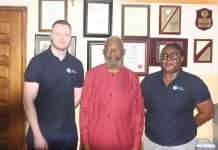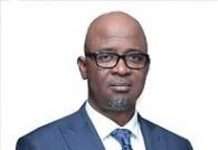
By Pharm. Dennis Okolo
Editor’s note: This is a continuation of our series of memoirs on the Igbo pharmacy students at the then University of Ife, now Obafemi Awolowo University (Ibadan Campus), who had to choose between running for their lives when the Biafra war began or completing their degree programme.
The Nigeria-Biafra war
Some Nigerian army majors carried out a lopsided coup on 15 January, 1966. The North, the Mid-West and the West lost some of their prominent politicians. The allegation that Igbo army officers plotted the coup against some politicians from other states caused widespread disillusionment. This resulted in the second coup of 28 July, 1966, which was described as counter coup. Mainly high-ranking Igbo army officers were killed.
This was followed by pogrom in the North, directed mainly against the Igbos. This massive slaughter of the Igbos resulted in their desperate exodus to their home state – eastern Nigeria.
Reconciliation meetings were held between the leaders of the rest of the Nigerian Federation and those of Eastern Nigeria, led by Col. Emeka Odumegwu- Ojukwu, in Aburi, Ghana. The failure of the Aburi Accord resulted in Gen. Yakubu Gowon creating the 12 states of Nigeria, followed by Ojukwu declaring the “Republic of Biafra” on 30 May, 1967. Non-indigenes of Eastern Nigeria, including students, were ordered to leave Biafra. Nigeria eventually declared war to bring Biafra back.
Our dilemma
The Eastern Nigeria students studying Pharmacy at the University of Ife (now Obafemi Awolowo University), Ibadan campus, started panicking to run back to Biafra. There were two categories of students. The first were final year degree students due to take their degree exam from 2 June. These included those of us who already had the University of Ife Diploma in Pharmacy. The second were students in the first and second years of the B.Pharm programme.
The final year degree students were facing a very difficult dilemma. Some of the returnees from the University of Nigeria, Nsukka, were already in the Ibadan Campus and wondering why we were still around.
Role of the vice-chancellor
We met the Vice-Chancellor, Prof. Hezekiah Oluwasanmi, to express our desire to return to Eastern Nigeria. He did everything possible to persuade us to stay. He said that any returnee grumbling for returning from Eastern Nigeria should simply go back. He encouraged us to stay and report anyone threatening us.
Despite all these assurances, we insisted on going home. Therefore, the VC arranged for a mobile police escort to take us from Ibadan to Asaba in two buses in the morning of 1 June, 1967. He further contacted the Commissioner of Police Benin/Asaba, as a further safety measure. He was a great and kind man.
On our way to Asaba, some – particularly the B.Pharm final year students – started having a second thought about the wisdom in the decision we had taken to abandon the final degree examinations starting the following morning and flee to Biafra. We were soon informed that some final year B.Pharm students had already turned back before getting to Benin. Some other junior students fleeing with us felt misled by the final year students.
Those of us who were from the Eastern Nigeria Ministry of Health and already having the University of Ife Diploma in Pharmacy knew what we were losing by going back to the ministry without a B.Pharm degree. The ministry had already created two grades of pharmacists: (i) Pharmacists with B.Pharm were classed as Level A, with an enhanced starting salary of £720.00 per annum as pharmaceutical officers; (ii) Pharmacists with Diploma in Pharmacy were classed as Level C.T. (Technical), with an annual salary of £408.00 (Enhanced Technical Grade).
Those of us from the Eastern Nigeria Ministry of Health were Bona Obiorah, Eugene Okonkwo, Pius Ogwueleka, and myself. Moses Azuike was with the Federal Ministry of Health in Lagos and Ifeanyi Atueyi was in the private sector in Lagos also.
The University of Ife had granted those of us with Diploma in Pharmacy the concession to come back for a one-year programme that would enable us sit for the B.Pharm degree. Therefore, we would be missing the opportunity if we failed to go back. After a lot of arguments, we unanimously decided to return to Ibadan.
The return journey
From Asaba, we chartered a 404 Station Wagon to Ibadan that night. However, when we got to Benin, we met an army checkpoint and, despite our pleading, the officer in charge said he would only pass us in the morning. After some more pleading, out request was granted.
Before we took off from Asaba, we had promised to pay the driver extra money if he maintained a speed of 120 mph to Ibadan. We told him we had our own cars and could drive well. We believed that, with this speed we would arrive Ibadan in time for the exam. By the grace of God, we arrived at the exam hall when our colleagues were taking the first paper. We were permitted to join in the paper and given extra time and Bic pens.
The last exam was the viva (oral exam) in Pharmacology, conducted by a professor from UCI, Ibadan. We pleaded with him to attend to us first as we were travelling back to Asaba from the exam hall. Meanwhile we had packed our bags at the porter’s lodge before going in for the oral exam.
As we came out of the exam hall, we moved into the waiting vehicle and drove off to Asaba.
The end-point
When we got to Asaba, we discovered that the Niger Bridge had been closed to all vehicles crossing to Onitsha. Those of us who had cars – Moses, Bona and Eugene – then abandoned their cars at Asaba and went home. They later returned for the cars.
In order to take the vehicles across, two large canoes were latched together and some strong, able-bodied men were paid to lift each vehicle and place it on the planks used to latch the canoes. Wooden wedges were used to prevent the vehicle from rolling into the river.
We, the Eastern Nigeria Ministry of Health pharmacists, travelled to Enugu to report to the chief pharmacist. We were delayed at the checkpoint at the Milkin Hill in front of the Technical Secondary School, Enugu. When we told the officers we were coming from Ibadan where we went to complete our degree exams, they were surprised that we are coming so late, in spite of announcements that all Easterners should come back.
We told them that the Ministry of Health was aware of our late return. They phoned the chief pharmacist to confirm. On confirmation, we were allowed to continue to Enugu.










